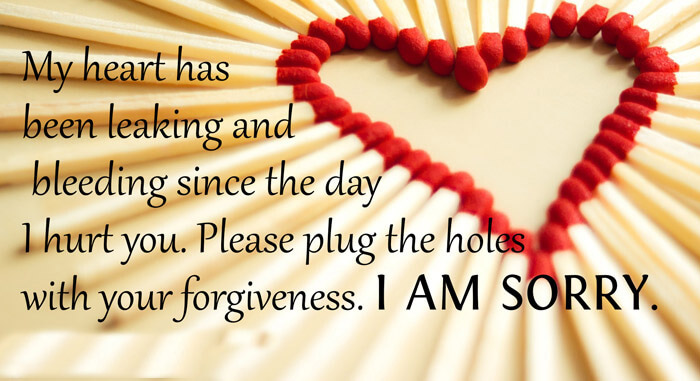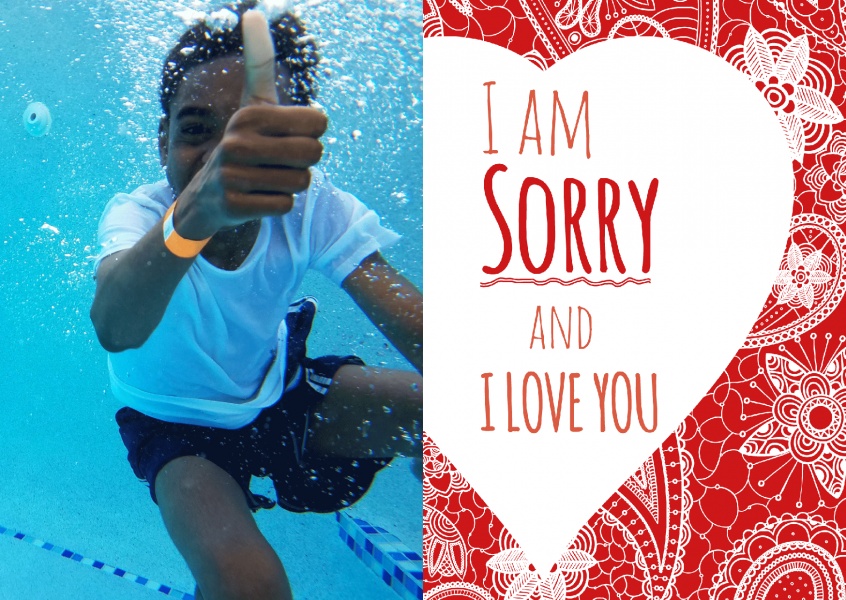Exploring the Emotional Depth of “I Love You, I’m Sorry”: I Love You Im Sorry

I love you im sorry – The phrase “I love you, I’m sorry” carries a profound emotional weight that can have a transformative impact on relationships. It is a complex expression that encompasses a range of emotions, including love, regret, remorse, and hope. These words have the power to heal wounds, bridge divides, and ignite new beginnings.
I love you, I’m sorry. Sometimes, these words are all we have left to say. Like Gracie Abrams sang, “Felt good about you, sorry I let you down.” In the end, it’s not just the words we speak, but the love we carry in our hearts that truly matters.
I love you, I’m sorry. Let’s start again.
The Significance of “I Love You”
The words “I love you” are among the most powerful and meaningful that can be spoken in any language. They convey a deep affection, admiration, and commitment to another person. When uttered in conjunction with an apology, these words take on an even greater significance. They acknowledge the hurt that has been caused and express a genuine desire to make amends.
Crafting a Meaningful Apology with “I Love You, I’m Sorry”

Expressing sincere remorse and empathy is crucial when apologizing with the words “I love you, I’m sorry.” This apology should convey a deep understanding of the hurt caused and a genuine desire for reconciliation.
Understanding the Other Person’s Perspective
To apologize effectively, it’s essential to put yourself in the other person’s shoes. Try to see the situation from their point of view, acknowledging their feelings and understanding how your actions have affected them.
Taking Responsibility
Avoid making excuses or blaming others. Take full responsibility for your actions and acknowledge your mistakes. This demonstrates that you are genuinely sorry and committed to making things right.
Using the Words Effectively
When saying “I love you, I’m sorry,” make sure your words are heartfelt and sincere. Use a calm and respectful tone, avoiding any accusatory or defensive language. Focus on expressing your remorse and desire for reconciliation.
Creative Expressions of “I Love You, I’m Sorry”
The words “I love you, I’m sorry” carry a profound weight, conveying both the depth of affection and the regret for causing pain. These emotions can be expressed in myriad creative ways, each offering a unique therapeutic outlet and a path towards reconciliation.
Poetry
Poetry, with its evocative language and lyrical flow, provides a powerful medium for expressing love and apology. Poets have long explored these themes, crafting verses that capture the complexities of human emotion. Pablo Neruda’s “Sonnet XVII” poignantly conveys the longing for forgiveness: “I do not love you as if you were salt-rose, or topaz, / or the arrow of carnations the fire shoots off. / I love you as certain dark things are to be loved, / in secret, between the shadow and the soul.”
Music
Music, with its ability to stir emotions and create a shared experience, offers a profound platform for expressing love and apology. Songs like “Apologize” by OneRepublic and “I’m Sorry” by Beyoncé blend heartfelt lyrics with haunting melodies, allowing listeners to connect with the raw emotions conveyed. Music can transcend language barriers, resonating with people from all walks of life.
Art, I love you im sorry
Visual art provides a non-verbal means of expressing emotions, making it a potent tool for conveying love and apology. Paintings, sculptures, and installations can capture the essence of these sentiments, inviting viewers to interpret and connect with the artist’s message. The abstract expressionist paintings of Mark Rothko, for example, evoke a sense of profound emotion and introspection, leaving room for viewers to project their own feelings onto the canvas.
Therapeutic Benefits
Expressing love and apology through creative mediums can have profound therapeutic benefits. It allows individuals to process their emotions in a safe and cathartic way, fostering self-reflection and growth. By externalizing these feelings, individuals can gain a deeper understanding of themselves and their relationships, leading to greater emotional resilience and healthier communication.
The words “I love you, I’m sorry” have been uttered countless times, carrying the weight of both longing and regret. Like the smoky haze of Gracie Abrams’ “Blowing Smoke” , they linger in the air, a bittersweet reminder of both the beauty and fragility of human connection.
The apology, a plea for forgiveness, seeks to mend the broken pieces, while the declaration of love echoes the longing for a connection that transcends the pain.
In the tapestry of love, sometimes we weave threads of regret, whispering “I love you, I’m sorry.” These words carry the weight of past mistakes and the hope for reconciliation. Like the raw emotions expressed in tough love lyrics , they remind us that even in the face of adversity, love has the power to heal and rebuild.
But like the frayed edges of a broken heart, the path back to love is not always easy. It requires honesty, forgiveness, and a deep understanding of the power of those three little words.
As I whisper “I love you, I’m sorry,” I’m reminded of the lyrics from “Good Luck Charlie,” which reminds me of the importance of forgiveness. The song’s message of hope and resilience resonates with me, as I strive to mend broken hearts and bridge the gaps that separate us.
In the tapestry of love, “I love you, I’m sorry” becomes the thread that weaves us back together.
In the depths of my heart, I whisper “I love you” and “I’m sorry” in hushed tones. As I delve into the poignant lyrics of ” I Knew It, I Know You “, a realization washes over me. The unspoken words that linger between us, like unfulfilled promises, have finally found their voice.